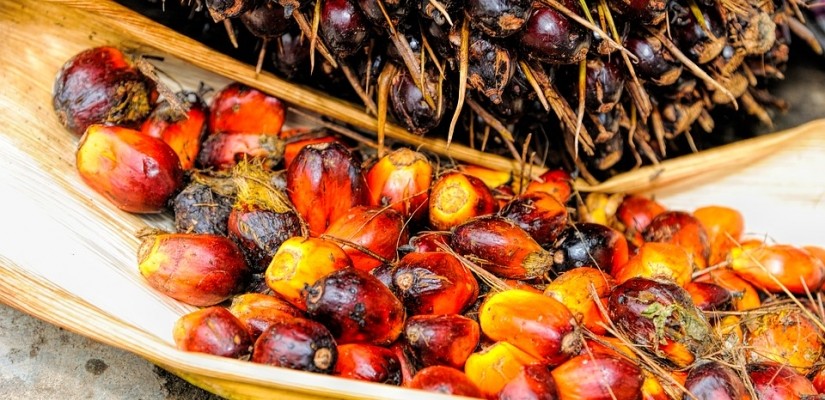A new episode of the trade dispute between the European Union (EU) and Indonesia is continuing disagreements over Indonesian export products. On August 14, 2019, the European Union imposed new duties on Indonesian biodiesel producers. The EU’s extra tariffs on biodiesel imports from Indonesia have increased tensions between the two parties after the EU previously decided to ban the usage of palm oil. This latest policy is the result of an EU anti-subsidy investigation on Indonesian biofuel in late 2018 which discovered that the Indonesian government unfairly subsidized biodiesel producers. With the future of the trade partnership between the EU and Indonesia currently at risk, the World Trade Organization (WTO), the body regulating global trade rules, should take steps to defuse tensions between the two disputing parties.
The European Union has imposed an anti-subsidy and anti-dumping policy to curb the use of palm oil in biofuels within the region. The EU Commission Implementing Regulation 2019/1344 of August 2019 to restrict biodiesel will be enforced on a provisional basis, with the possibility to convert the policy into a definitive measure by December 2019. The regulation imposes countervailing duties of 8% to 18% on imports of subsidized biodiesel from Indonesia's biofuel producers. Following the anti-subsidy investigation of 2018, the EU found that the Indonesian government gave incentives to the following companies: PT Ciliandra Perkasa, PT Wilmar Bioenergi Indonesia, Permata Group, and PT Musim Mas. The EU claimed that these biodiesel companies had enjoyed various privileges, such as trade-distorting aid, grants, tax benefits, and access to raw materials below market price. While the companies have denied the allegation, the EU persists on imposing higher tariffs.
As the EU is one of the biggest markets for Indonesian biodiesel, the new duty on imports originating in Indonesia is a significant threat to the future of the industry. The European biodiesel market is worth an estimated nine billion euros ($10.1 billion) a year, and a share of 400 million euros ($450 million) is generated through Indonesian imports. The anti-subsidy duties will likely make the biodiesel producers renegotiate their contracts with buyers in the EU. Furthermore, the producers will reduce their biodiesel exports in 2019.

Since the EU aims to achieve renewable energy targets by phasing out palm oil products for transportation fuel by 2030, the EU continuously penalizes the distribution of Indonesia's palm oil commodities through available trade defense instruments. While the Indonesian government imposed a moratorium on new palm oil plantations and claims that the palm oil industry is now complying with sustainability standards set by the Roundtable on Sustainable Palm Oil (RSPA) or the Indonesian Sustainable Palm Oil (ISPO) policy, the industry continues to be the primary cause of mass deforestation and the destruction of animal habitat. As a countermeasure, the Indonesian Minister of Trade Enggartiasto Lukita declared that the country will impose 20% to 25% tariffs on European dairy products. Moreover, the Indonesian government has recently challenged the EU Renewable Energy Directive (RED) II policy targeting Indonesian palm oil at the WTO. In previous disputes, the WTO had ruled in Indonesia’s favor in five of six cases, including a case on anti-dumping duties imposed by the EU on Indonesian biodiesel shipments.
The Indonesian government argues that the EU’s motive behind its restriction on Indonesian palm oil-based biodiesel is the protection of uncompetitive European biofuels based on soybean, sunflower, or rapeseed. The EU claims that high import duties would restore a level playing field for EU biofuel producers, while Indonesia suspects that the ban on biofuels produced from palm oil is part of the EU's tactic to protect its domestic producers.
The trade war will potentially threaten new discussions on the Indonesia-EU Comprehensive Economic Partnership Agreement (IEU CEPA). Additionally, the dispute could also affect further duties and crucial trade opportunities in Southeast Asia. As a member of the Association of Southeast Asian Nations (ASEAN), Indonesia has a strategic role in influencing the future of the ASEAN-EU free trade agreement (FTA). The long-term cost of the trade war will have a direct impact on businesses and consumers not only in the EU and Indonesia but also in other ASEAN member states. For instance, the EU’s trade ban on palm oil products will compel Indonesia and Malaysia to restrict major European commodities such as vehicles, aircraft, liquors, and salmon. The potential loss from reductions in exports will significantly hamper the economic development of both regions.
These protectionist policies have greatly impacted global trade development. The EU’s protectionist path will not only increase the economic risk in its own region but potential losses from declining export will also significantly impair economic integration with its trading partners. Furthermore, as the tariff war continues, it will also harm the working class and small enterprises. The WTO should therefore support endeavors to mitigate the negative effects of protectionism by increasing its efforts to monitor and settle the dispute. With effective political cooperation and WTO leadership, global protectionist trends in the multilateral trading system can be reduced.
